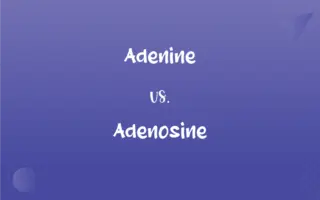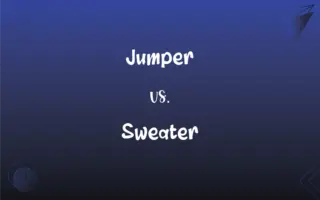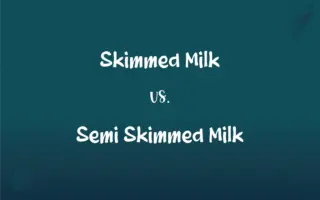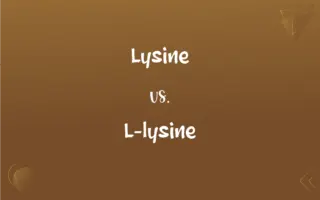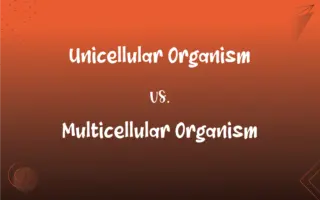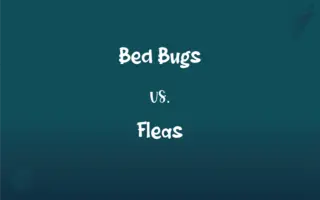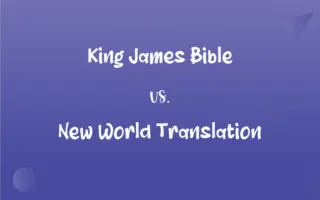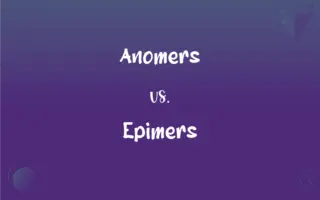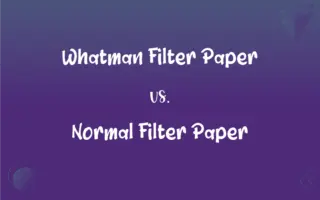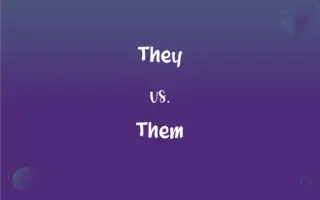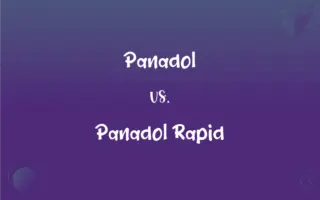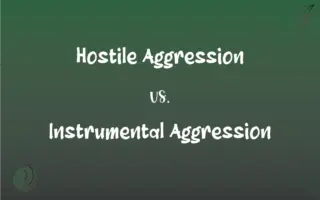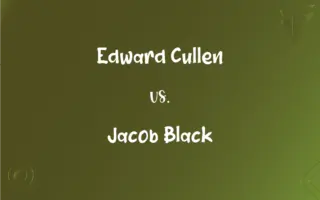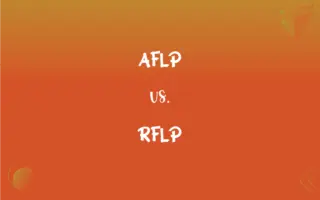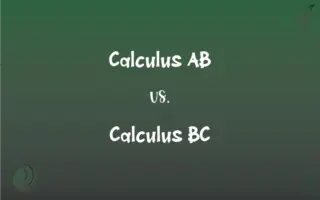Could You vs. Would You: What's the Difference?
Edited by Janet White || By Harlon Moss || Published on December 3, 2023
"Could you" asks if someone is capable of doing something, implying a request, while "would you" seeks agreement or willingness for an action.
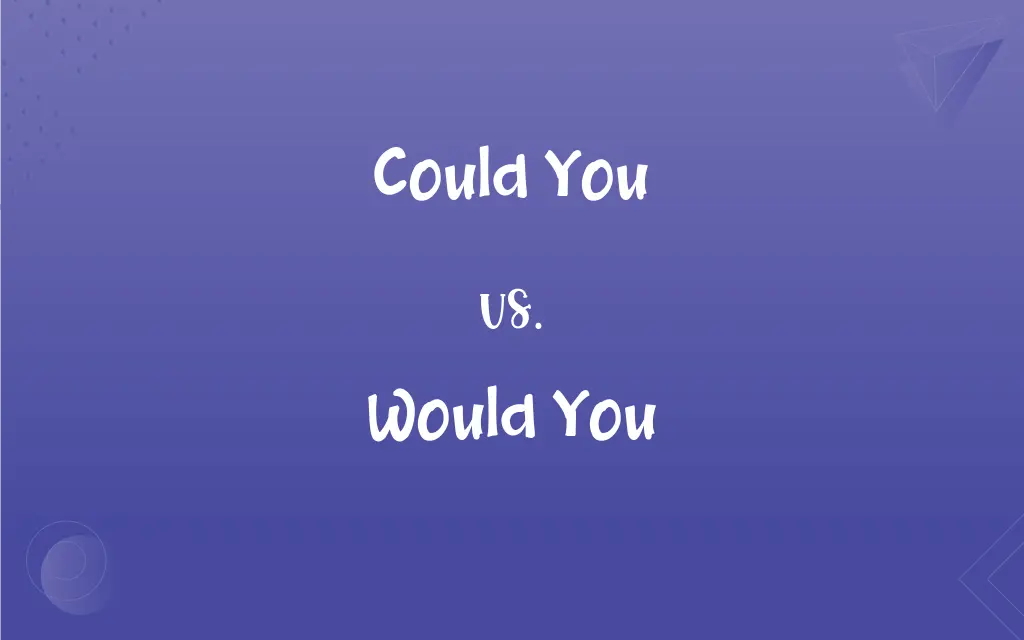
Key Differences
"Could you" is used to inquire about someone's ability or possibility to perform a task. In contrast, "would you" is used to request someone to do something, focusing on their willingness or agreement.
When using "could you," the speaker is often politely asking if the task is feasible for the listener. With "would you," the emphasis is on seeking consent or a favor, often in a polite and considerate manner.
"Could you" can be used in situations where there is uncertainty about the ability or availability to do something. "Would you," however, assumes the capability and asks if the person is willing to undertake the task.
In terms of politeness, both phrases are used to soften requests, but "could you" is slightly more indirect, focusing on ability. "Would you" is more direct in asking for a commitment or action.
"Could you" is versatile, applicable in various contexts where capability is in question. "Would you" is more specific to situations requiring a yes or no response based on the listener's willingness.
ADVERTISEMENT
Comparison Chart
Primary Use
Asking about ability or possibility
Seeking agreement or willingness
Focus
On the feasibility of performing a task
On the consent or favor to do something
Implication
Uncertainty about ability or availability
Assumes capability, asks for willingness
Politeness Level
More indirect, focusing on possibility
Direct, asking for commitment
Context
Versatile in capability-based queries
Specific to willingness-based responses
ADVERTISEMENT
Could You and Would You Definitions
Could You
Indicates a polite, indirect way of asking.
Could you possibly lend me your notes?
Would You
Indicates a direct approach to request action.
Would you take a message for me?
Could You
Implies uncertainty about the feasibility.
Could you drive me to the airport?
Would You
Used to ask for a favor or agreement.
Would you join our team for the project?
Could You
Often used to request a favor or assistance.
Could you check these calculations for me?
Would You
Often used in formal or polite settings.
Would you be available for a meeting tomorrow?
Could You
Used to ask if a task is possible to be done.
Could you complete this by tomorrow?
Would You
Implies seeking consent or approval.
Would you consider extending the deadline?
Could You
A polite inquiry about someone's ability to do something.
Could you help me with this report?
Would You
A polite request seeking someone's willingness.
Would you mind turning down the music?
FAQs
Can "could you" imply uncertainty?
Yes, it often implies uncertainty about ability or feasibility.
Is "could you" a polite request?
Yes, it’s a polite way to ask about someone's ability.
Does "would you" assume ability?
Yes, it assumes the person is capable and seeks their willingness.
What does "could you" imply?
It inquires about the ability to do something.
What is the emphasis of "would you"?
It focuses on seeking willingness or agreement.
Is "could you" indirect in making requests?
Yes, it’s a more indirect approach to asking.
In what context is "could you" used?
When there’s doubt about the possibility or capability for a task.
What does "would you" imply in terms of consent?
It seeks consent or approval for a requested action.
How does "would you" ask for a favor?
By directly seeking someone's consent to do something.
Can "could you" be used in formal settings?
Yes, it’s suitable for both formal and informal settings.
What kind of response does "would you" seek?
A yes or no answer based on the person’s willingness.
Does "could you" focus on capability or willingness?
It focuses more on capability and possibility.
What tone does "would you" convey?
A respectful but more straightforward tone.
Can "could you" be used to request assistance?
Yes, it’s often used to politely ask for help.
How direct is "would you" in requests?
It's more direct, seeking a clear commitment.
Is "would you" appropriate for formal requests?
Yes, especially in polite or considerate contexts.
Which is more common in everyday conversation, "could you" or "would you"?
Both are common, depending on the context and politeness level.
How is "could you" different in tone?
It’s gentler and more tentative in tone.
Is "would you" suitable for asking for help?
Yes, when seeking a direct agreement to help.
Can both phrases be used interchangeably?
They can be, but the choice depends on whether you're emphasizing ability or willingness.
About Author
Written by
Harlon MossHarlon is a seasoned quality moderator and accomplished content writer for Difference Wiki. An alumnus of the prestigious University of California, he earned his degree in Computer Science. Leveraging his academic background, Harlon brings a meticulous and informed perspective to his work, ensuring content accuracy and excellence.
Edited by
Janet WhiteJanet White has been an esteemed writer and blogger for Difference Wiki. Holding a Master's degree in Science and Medical Journalism from the prestigious Boston University, she has consistently demonstrated her expertise and passion for her field. When she's not immersed in her work, Janet relishes her time exercising, delving into a good book, and cherishing moments with friends and family.
